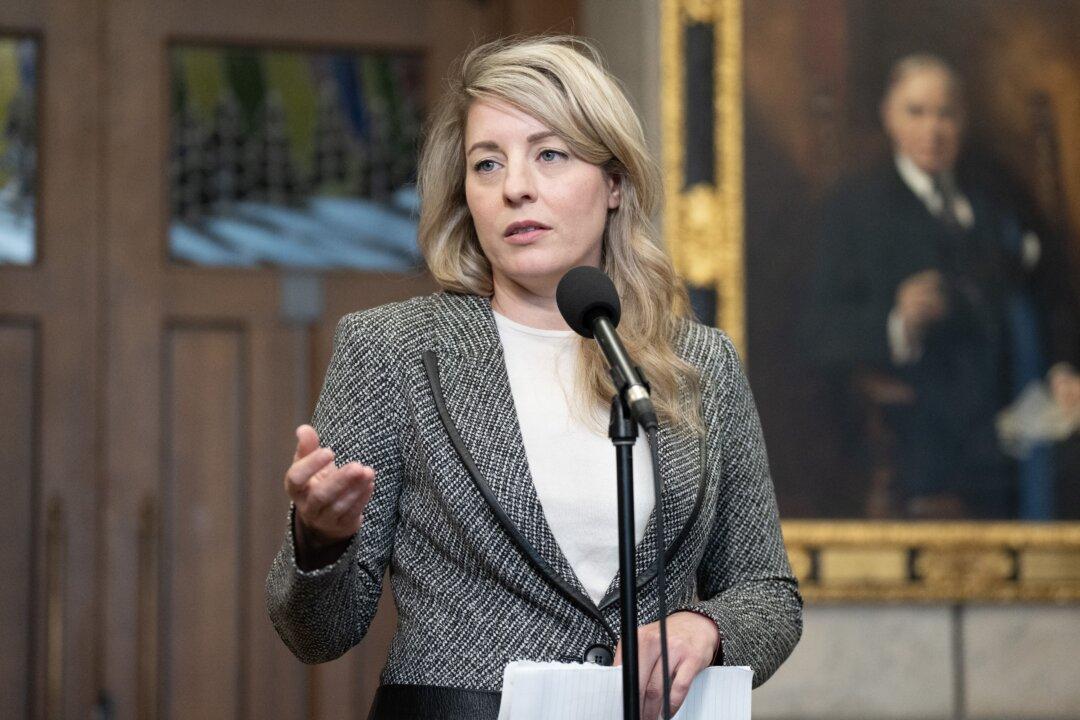Foreign Affairs Minister Mélanie Joly’s visit to China comes at a time when there’s increased scrutiny of the Beijing regime’s meddling in Canada and harassment of the diaspora community, raising questions about the timing of the trip.
An ongoing public commission is currently examining China’s interference in federal elections and other areas of society. And just this month, the RCMP in Quebec took the unusual step of launching a public campaign calling for tips about Beijing’s harassment of Canada’s Chinese diaspora.





